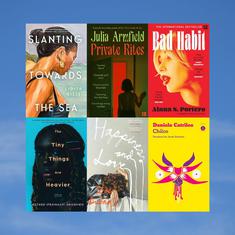Watch: Why did China ban images of poor Winnie the Pooh? (Hint: does anyone resemble him?)
The slow but loveable bear has been compared with President Xi Jinping in viral memes, which hasn’t gone down well with the Communist Party.
It’s hard to resist the charms of the chubby, confused bear Winnie the Pooh. In China, however, the loveable bear has been banned – without an official explanation. Typing the bear’s name in the comments section of a thread leads to the message: “This content is illegal”. GIFs and illustrations of the bear have also been taken down from the popular messaging site WeChat.
Why would China have a problem with AA Milne’s immortal creation?
Apparently trouble started brewing in 2013, when an image of Chinese President Xi Jinping walking in front of former US President Barack Obama was compared with an image of Winnie the Pooh with his friend Tigger, and circulated widely on social media.
Winnie the Pooh gets banned from Chinese social media for looking too much like Xi Jinping https://t.co/5L4DTTPexa pic.twitter.com/KKbcAaZYzJ
— Shanghaiist.com (@shanghaiist) July 17, 2017
The cartoon stirred up a controversy again in 2014, when a picture of Pooh’s shaking hands with Eeyore was likened to an image of Xi Jinping’s awkward handshake with Japan’s Prime Minister Shinzo Abe.
Chinese Internet users FTW. #APEC2014 pic.twitter.com/6wFDvhlaNv
— Josh Chin 李肇华 (@joshchin) November 10, 2014
The most censored image in China in 2015 – it got more than 65,000 shares on social media site Weibo in a little over an hour – was an image of Xi Jinping with his head sticking out of his limousine during a parade, juxtaposed with an image of the bear in his own car.
(Web) En Chine, la photo la + censurée en 2015 est celle d'un jouet Winnie l'Ourson utilisée pour railler Xi Jinping pic.twitter.com/YvddMCkbRR
— Chronique Disney (@ChroniqueDisney) January 6, 2016
But why the ban now, four years after the first controversial image?
China’s Communist Party is due to hold its 19th congress in the autumn of 2017, which marks the beginning of Xi Jinping’s probable second term in office. To ensure a smooth transition and to portray a powerful image of the Chinese leader, the Chinese censors have been cracking down on threatening, undermining or disrespectful content. Being compared to a round, lazy bear with bare bums and silly antics is possibly not what the President has in mind.
The video (below) shows an amusing response to the censorship, involving Hitler’s reaction in a parody of the 2004 film Downfall.









